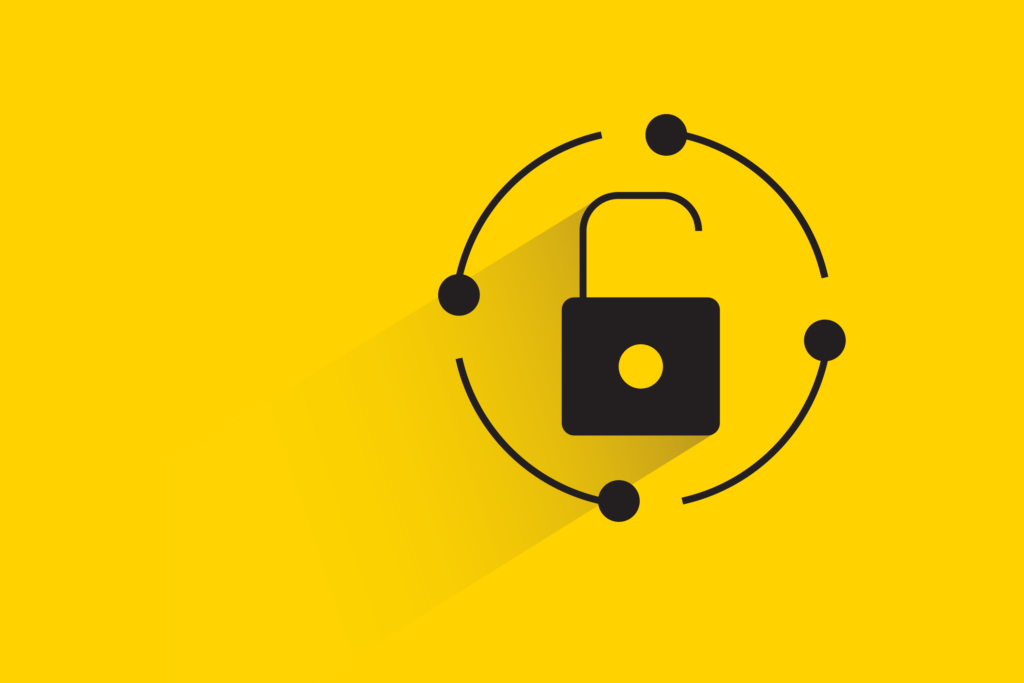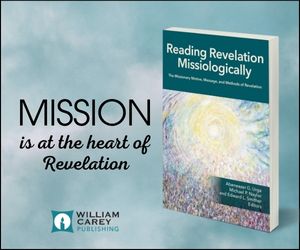EMQ » July–September 2023 » Volume 59 Issue 3

Summary: The free software and open source movements in the technology industries have been so successful that even large corporations participate in them. What can we learn from this methodology that we can apply to ministry resources right now?
By Jon Here
People without a background in IT can often feel intimidated by the technical jargon and magic that seems to happen behind their screens. But there is a software paradigm that is popular in the programming world that is applicable for any ministry.
As early as the creation of the Internet, many programmers realized it was far more beneficial to share their work with each other than to keep it to themselves. Software was ideal for this because source files are easily transmitted electronically at little cost, and improvements can be made by building on another person’s work.
So the free software, and later the open source, movements were born and still continue strong to this day. These software paradigms have been so successful that even big companies like Microsoft, Apple, and Google, are significant contributors. Microsoft was especially critical in the early days of the idea of open source, and yet now it is the owner of the largest platform for open source code in the world (GitHub).
The missions world has also been increasingly adopting an open source attitude, especially in regard to Bible translation software. And any ministry could adopt a similar attitude, especially those that rely on resources that can be digitized, since duplicating digital works is virtually cost-free. That could include books, trainings, music, images, etc.
Almost all forms of ministry resources can be digitized and so are also ideal for sharing and collaboration. However, it’s important to understand the key rights attached to open source software as well as biblical ideals on giving in order to effectively apply open source methodology to ministry resource collaboration.
The Right to Copy
The basic requirement for collaboration to function is to have access to each other’s work. So a core part of the open source philosophy is the right to copy and distribute other people’s code. So when one programmer fixes an issue, all programmers benefit and have access to that fix, too. And when one programmer creates a helpful tool, all programmers have it at their disposal as well. This avoids duplicating efforts. If all programmers had to fix the same problem themselves, without sharing, it would be an incredible waste of time and talent.
The church greatly benefited from the free copying and distribution of ministry resources during the Reformation. Copyright was only first put into law in 1710 (with the Statute of Anne), so it didn’t exist during the time of the Reformation which allowed anyone to freely distribute the works of the reformers. This was one of the factors that led to its success.i
However, since copyright was invented the Church has largely followed the lead of secular society in defaulting to “all rights reserved.” It has not questioned whether the automatic protection they get is actually what is best for their ministry-oriented creations.
The Right to Modify
For there to be innovation and the ability to improve upon other people’s work, there also needs to be the right to modify it. Imagine you bought a car for driving in a hot sunny climate and you wanted to tint the windows to reduce the amount of UV light coming in. But when you go to get them tinted, you’re told you don’t have the right to modify the car. The manufacturer has only given you the right to drive it, not to improve it in any way.
Software developers have realized the benefit in allowing others to modify their own work. Other people can fix a defect, add a new feature, or improve the software in some other way that the initial creator may never have thought of.
Likewise, it is highly advantageous to be able to modify ministry resources. You may have created a training for a certain group in mind, but someone else may want to rework the format of it for a different demographic. You may have created some images for bible stories, but someone wants to apply a filter that converts them into the artistic style of another culture.
Not only can someone adapt a resource in ways you might imagine, they can also adapt them in ways you cannot imagine. We need to have the humility to consider that someone may come up with a better idea than we did, and allow our resources to be adapted accordingly.
The Right to Translate
The right to translate isn’t a widely discussed topic in software development because it generally falls under the right to modify. But it is a very important right for resources that are more content-based, such as text and audio resources. There is an abundance of ministry resources that have been created for English-speakers, but they are all inaccessible to those who don’t speak English. Most of them will never get translated into another language, and those that do will usually only get translated into a few other languages.
Despite this, content creators have defaulted to an all rights reserved attitude that includes forbidding anyone from translating ministry resources without permission. While it might sound simple to simply ask permission, it is not usually that easy. It can take months or even years for permission to be granted, assuming the owner can be contacted in the first place. There are also over 7,000 languages in the world, and managing the translation of even the top 100 is too big a task for most organizations.
Many missionaries will rightly argue that locally created ministry resources made by local communities are more contextualized and reproducible. But something is better than nothing. We should let other believers decide for themselves what they need, and what they would find most beneficial. We should also recall the rich theology we ourselves have received from translating the works of the early church fathers and reformers. Our abundance should not be off limits to the rest of the world.
How to Open Source Other Resources
While open source is a software-specific term and there are licenses specifically for software, there are also similar licenses for all other types of intellectual property. The Creative Commons organization (creativecommons.org) was founded to help facilitate the licensing of works so that anyone can freely share and improve upon them. Licensing is a legal area beyond the expertise of ordinary authors, and so Creative Commons created several “public licenses” that anyone can easily apply to their own works without having to come up with their own license.
Creative Commons is a secular organization though, and so there is no mention of the theological aspect of sharing resources. This is why Gracious Tech created Let’s Copy, Church (copy.church) to provide a Christian licensing platform that includes both the how and the why of resource sharing.
A Biblical Paradigm
Freely sharing resources is not just a good idea, it is a biblical ethic. When Jesus sent out the twelve disciples to minister to Israelite towns, he said this: “As you go, preach this message: ‘The kingdom of heaven is near!’ Heal the sick, raise the dead, cleanse lepers, cast out demons. Freely you received, freely give.” (Matthew 10:7–8 NET, emphasis added)
This verse is often interpreted in terms of money – that the disciples were to freely share the gospel without charging people. But we should also consider this command in terms of conditions. Let’s consider the conditions most copyrighted resources have and whether they would be reasonable to assume in the context of the ministry of the early disciples.
- Freely give ministry, but don’t let anyone share it. Would the apostles have prevented their teaching from being freely copied and shared? Obviously not. That would go against their mission of helping the gospel spread far and wide. Instead, the letters of the apostles were copied without restriction, allowing us to have a vast collection of early manuscripts today.
- Freely give ministry, but don’t let anyone adapt it. Luke was not one of the twelve but did important work in adapting the teachings he heard into “an orderly account … so that you may know for certain the things you were taught” (Luke 1:3–4 NET). Obviously Luke’s work is now set in stone as Scripture itself, which is not to be changed! But it still demonstrates the value in adapting ministry resources and contextualizing them for different contexts, just as the authors of the gospels had different audiences in mind as they assembled the things they had seen and heard.
- Freely give ministry, but don’t let anyone translate it. It would obviously be hard to “go and make disciples of all nations” (Matthew 28:19 NET) if ministry resources cannot be translated into the languages of all the nations. It is unlikely all Jesus’ teachings were spoken in Greek and yet they are preserved in Greek in Scripture. Clearly freely giving ministry is not compatible with forbidding the translation of it.
- Freely give ministry, but ensure you are credited for it. It is appropriate to give credit where credit is due and the apostles at times did so (2 Peter 3:15). But would they have demanded credit? The problem with all the Creative Commons licenses is that they require giving attribution whenever a resource is used, even if it would be distracting or inconvenient to do so.
There is however another tool that Creative Commons provides: is a public domain dedication (CC0). This is technically not a license. A license grants certain permissions for a resource that is owned by someone. A public domain dedication instead gives up the actual ownership of the resource, waiving all rights so that there are no conditions on how it can be used. That is the truest form of “freely giving,” – giving up all ownership of a ministry resource so that it all goes into the hands of the receiver, without conditions.
Freely Give
The secular software community has put Christians to shame in how generous and collaborative they are. Today almost every website, phone, and computer will be running some open source software. Millions of non-Christian programmers give up their time and talent to projects that are free to use, copy, and modify for the betterment of humanity.
If only there were millions of Christians doing the same for the betterment of God’s kingdom. While there are many generous believers giving resources for free in terms of money, very few release their works from copyright and so the giving comes with many conditions. We do not need to take inspiration from the secular world though, as it was Jesus’ idea in the first place. Let’s do as he says: Freely you received, freely give.
This article is dedicated to the public domain: https://copy.church/free/.

Jon Here (jon@gracious.tech) has served as a pastor and as a missionary in South-East Asia and went on to start Gracious Tech for creating apps for mission. Hundreds of missionaries currently rely on Gracious Tech’s secure newsletter software, Stello. Every app his company makes is free to use and open source.
EMQ, Volume 59, Issue 3. This article is freely available without copyright or licensing restrictions.









Responses